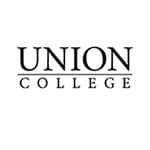I honestly think certain issues are best understood through specific, smaller-scale examples.
For instance, there’s the broad issue of global warming and climate change and human use of fossil fuels and all the corresponding problems that arise as a result. Yet instead of trying to tackle the issue broadly, I think it best to start small and work your way up. Which is why my paper focused on the U.S. relationship with Saudi Arabia, a relationship centered almost entirely around 2 fundamental, core values: cheap oil and defensive guarantees.
For too long, in fact since the end of World War II, the United States of America has guaranteed Saudi national security and defense in exchange for a reliable supply of cheap oil supplies. We have overlooked Saudi offenses and atrocities time and time again, to the detriment of our own values and the sacrifice of American lives.
The issue, of course, is U.S. reliance on Saudi oil supplies. On a daily basis, Saudi oil supplies represent roughly 5% of U.S. oil consumption (U.S.E.I.A.). Obviously, this dependence results in an unwillingness to abandon Saudi Arabia’s record of abuse in favor of what we believe.
As a result, we sacrifice our own values as well as the present and future of our environment in order to maintain the status quo. Clearly, this trade-off is unsustainable to say the least. It requires necessary and immediate change, in both U.S. energy and foreign policy.

